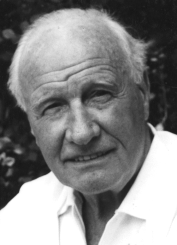No one can predict the results of our national election, but whatever the outcome we, as a nation, will face challenges unlike any we have encountered in our lifetime. We cannot address these challenges alone. We will need God's help; or, perhaps more accurately, God wants -- He certainly doesn't need -- our help. He wants us to turn to him in humility and to seek His will for us as a nation and as individuals. He wants us to abandon ourselves completely to Him. But, sadly, too many of our fellow citizens have evicted God from their lives, rejected any thought of humility before their Creator, and actually believe that man can solve all the world's problems without divine help.
Take some time today to pray together as a family. Spend a few moments in the presence of Jesus Christ in the Blessed Sacrament. He's there in the Tabernacles of every Catholic Church, waiting for you in silence. And fast! Let God be your food today. Let Him fill you with His goodness.
Early this morning as I prayed the Morning Prayer of the Church's Liturgy of the Hours, I was struck by the appropriateness of the selection of the prayer of Azariah from Daniel 3, the prayer he offered from within the fiery furnace. The Church selected the following verses to include in its Morning Prayer:
O Lord, do not withdraw your favor from us.
Blessed are you, Lord God of our fathers: your name is glorious for ever for you are just in all you have done to us.
For we have sinned and done wrong, we have deserted you and done all things wrong.
Do not give us up for ever, for your name’s sake we beg you, do not dissolve your covenant.
Take not your loving kindness from us, for the sake of Abraham, your beloved; and Isaac your servant, and Israel your holy one.
You told them you would multiply their seed like the stars of the sky like the sand on the shores of the sea.
But we, Lord, are made the least of all nations.Today we are brought low over all the earth on account of our sins.
Today there is no prince, no prophet, no leader, no holocaust, no sacrifice. No offering, no incense, no first-fruits offered to you – no way to obtain your mercy.
But in our contrite souls, in a spirit of humility, accept us, Lord. Like a holocaust of rams and bulls, like fat sheep in their thousands, let our sacrifice be like these before you today.
Bring to fruition the quest of those who follow you, for those who trust in you can never be confounded.
Yes, indeed, "Today we are brought low over all the earth on account of our sins." We stand in a fiery furnace of our own making; and so, let us too call out to God "in the spirit of humility" and follow Him wherever He leads us.And now we follow you with all our heart and we revere you and seek your face.
Pray for our nation.
God's peace...



























